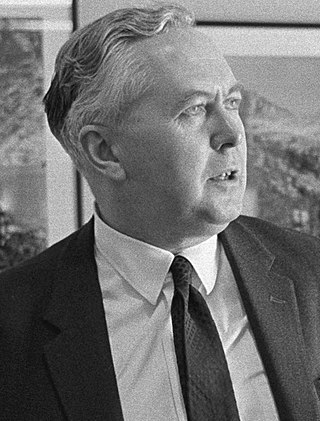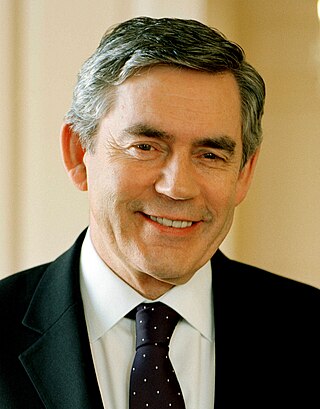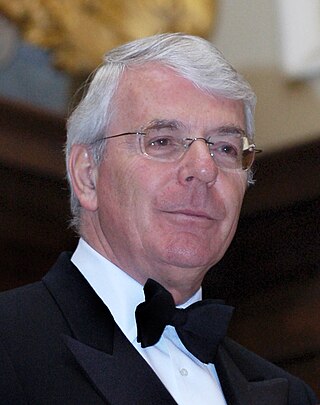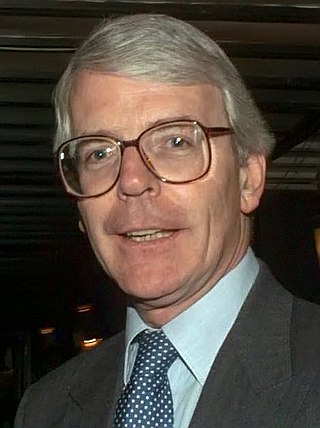Related Research Articles

Sir Julian Errington Ridsdale was a British National Liberal and later Conservative politician and long-serving Member of Parliament (MP) for Harwich. He took a particular interest in Japan.

The 1997 Prime Minister's Resignation Honours were officially announced in two supplements to The London Gazette of 1 August 1997 and marked the May 1997 resignation of the Prime Minister, John Major.

The 1990 Prime Minister's Resignation Honours were officially announced in the London Gazette of 21 December 1990 and marked the resignation of the Prime Minister, Margaret Thatcher, who had stepped down from the role in November that year after more than 11 years in office and nearly 16 years as Leader of the Conservative Party.

The 1970 Prime Minister's Resignation Honours were officially announced in the London Gazette of 7 August 1970 and marked the June 1970 electoral defeat of the Prime Minister, Harold Wilson.

The 2010 Dissolution Honours List was issued on 28 May 2010 at the advice of the outgoing Prime Minister, Gordon Brown. The list was gazetted on 15 June.
The 1966 Dissolution Honours List was issued on 19 May 1966 following the dissolution of the United Kingdom parliament in preparation for a general election.

The 1992 Dissolution Honours List was gazetted on 5 June 1992 following the advice of the Prime Minister, John Major.

The 1997 Dissolution Honours List was gazetted on 18 April 1997 following the advice of the outgoing Prime Minister, John Major. The only honours in this list were 21 life peerages.

The 1983 Dissolution Honours List was gazetted on 21 July 1983 following the advice of the Prime Minister, Margaret Thatcher.

The 1987 Dissolution Honours List was gazetted on 30 July 1987 following the advice of the Prime Minister, Margaret Thatcher.
The Honours Committee is a committee within the Cabinet Office of the Government of the United Kingdom formed to review nominations for national honours for merit, exceptional achievement or service. Twice yearly the Honours Committee submits formal recommendations for the British monarch's New Years and Birthday Honours. Members of the Honours Committee—which comprises a main committee and nine subcommittees in speciality areas—research and vet nominations for national awards, including knighthoods and the Order of the British Empire.

The 2001 Dissolution Honours List was gazetted on 2 June 2001 prior to the General Election of the same year by the Prime Minister, Tony Blair.

The 2015 Dissolution Honours List was issued on 27 August 2015 upon the advice of the Prime Minister, David Cameron. The Life Peerages were announced separately from the other appointments, while it was gazetted as a single list on 22 September 2015.

The 2005 Dissolution Honours List was issued after the General Election of the same year on the advice of the Prime Minister, Tony Blair.
The 1922 Birthday Honours were appointments by King George V to various orders and honours to reward and highlight good works by citizens of the British Empire. The appointments were made to celebrate the official birthday of The King, and were published in The London Gazette on 2 June 1922.
The February 1974 Dissolution Honours List was issued on 2 April 1974 following the dissolution of the United Kingdom parliament in preparation for a general election.
The 1970 Dissolution Honours List was issued on 2 June 1970 to mark the dissolution of the United Kingdom parliament prior to the 1970 general election.
The 1959 Dissolution Honours List was issued on 19 September 1959 to mark the dissolution of the United Kingdom parliament prior to the 1959 general election.
The 1964 Dissolution Honours were officially announced on 27 November 1964 and marked the dissolution of parliament following the 1964 General Election.
The 1979 Dissolution Honours List was issued in June 1979 following the general election of that year.
References
- ↑ "No. 46422". The London Gazette (Supplement). 5 December 1974. p. 12277.